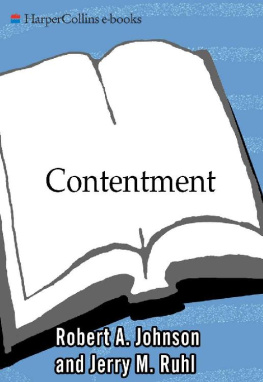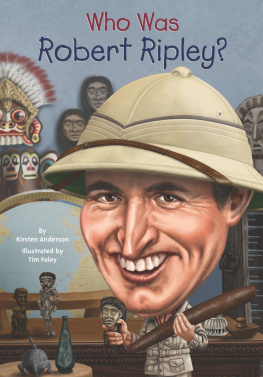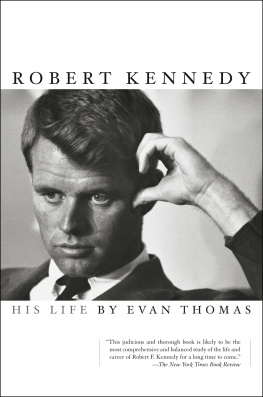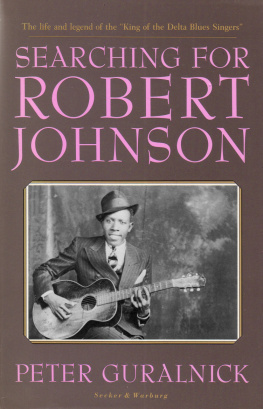Annye C. Anderson - Brother Robert: Growing Up with Robert Johnson
Here you can read online Annye C. Anderson - Brother Robert: Growing Up with Robert Johnson full text of the book (entire story) in english for free. Download pdf and epub, get meaning, cover and reviews about this ebook. year: 2020, publisher: Hachette Books, genre: Non-fiction / History. Description of the work, (preface) as well as reviews are available. Best literature library LitArk.com created for fans of good reading and offers a wide selection of genres:
Romance novel
Science fiction
Adventure
Detective
Science
History
Home and family
Prose
Art
Politics
Computer
Non-fiction
Religion
Business
Children
Humor
Choose a favorite category and find really read worthwhile books. Enjoy immersion in the world of imagination, feel the emotions of the characters or learn something new for yourself, make an fascinating discovery.

- Book:Brother Robert: Growing Up with Robert Johnson
- Author:
- Publisher:Hachette Books
- Genre:
- Year:2020
- Rating:4 / 5
- Favourites:Add to favourites
- Your mark:
- 80
- 1
- 2
- 3
- 4
- 5
Brother Robert: Growing Up with Robert Johnson: summary, description and annotation
We offer to read an annotation, description, summary or preface (depends on what the author of the book "Brother Robert: Growing Up with Robert Johnson" wrote himself). If you haven't found the necessary information about the book — write in the comments, we will try to find it.
Brother Robert: Growing Up with Robert Johnson — read online for free the complete book (whole text) full work
Below is the text of the book, divided by pages. System saving the place of the last page read, allows you to conveniently read the book "Brother Robert: Growing Up with Robert Johnson" online for free, without having to search again every time where you left off. Put a bookmark, and you can go to the page where you finished reading at any time.
Font size:
Interval:
Bookmark:
Copyright 2020 by Annye C. Anderson
Foreword copyright 2020 by Elijah Wald
Cover design by Amanda Kain
Cover photograph Authors collection
Cover copyright 2020 by Hachette Book Group, Inc.
Hachette Book Group supports the right to free expression and the value of copyright. The purpose of copyright is to encourage writers and artists to produce the creative works that enrich our culture.
The scanning, uploading, and distribution of this book without permission is a theft of the authors intellectual property. If you would like permission to use material from the book (other than for review purposes), please contact permissions@hbgusa.com. Thank you for your support of the authors rights.
Hachette Books
Hachette Book Group
1290 Avenue of the Americas
New York, NY 10104
HachetteBooks.com
Twitter.com/HachetteBooks
Instagram.com/HachetteBooks
First Edition: June 2020
Published by Hachette Books, an imprint of Perseus Books, LLC, a subsidiary of Hachette Book Group, Inc. The Hachette Books name and logo is a trademark of the Hachette Book Group.
The Hachette Speakers Bureau provides a wide range of authors for speaking events. To find out more, go to www.hachettespeakersbureau.com or call (866) 376-6591.
The publisher is not responsible for websites (or their content) that are not owned by the publisher.
Reveal photo is courtesy of the authors collection.
Library of Congress Cataloging-in-Publication Data
Names: Anderson, Annye C. author. | Lauterbach, Preston, author.
Title: Brother Robert : growing up with Robert Johnson / by Mrs. Annye C. Anderson with Preston Lauterbach.
Description: First edition. | New York : Hachette Books, 2020. | Includes index.
Identifiers: LCCN 2019034235 | ISBN 9780306845260 (hardcover) | ISBN 9780306845277 (epub)
Subjects: LCSH: Johnson, Robert, 19111938. | Blues musiciansUnited StatesBiography. | Johnson, Robert, 19111938Family. | Anderson, Annye C.
Classification: LCC ML420.J735 A75 2020 | DDC 782.421643092 [B]dc23
LC record available at https://lccn.loc.gov/2019034235
ISBNs: 978-0-306-84526-0 (hardcover), 978-0-306-84527-7 (ebook)
E3-20200514-JV-NF-ORI
This book is dedicated to the memory of my daughter Hughia, who believed my story is just as important as Robert Johnsons. Also to Sister Carrie, who suffered greatly and who never got her reward.
W hen we listen to a favorite artist, they often seem to understand us better than we know ourselves. As we keep listening in different situations, through our changing lives, we inevitably come to feel we know them in similarly deep ways. Robert Johnsons recordings have a particular intimacy because no other musicians are involved. We are alone with just his voice and guitar, hearing his breath between phrases, the strain in his high notes, the rattle of his slide on the frets, and the occasional murmured comments, as if he were talking directly to us.
For more than eighty years, the only way to experience Robert Johnson has been through those recordings. For millions of people all around the world, he is those recordings. We have listened to them over and over, spent hours, days, and years with them. So it is easy to feel we have spent that time with Johnson, and to forget that he only spent a few days making them and what we are hearing is barely an hour and a half of his life.
Annye Anderson really did spend days and weeks with Robert Johnson, over many years, not as a disembodied voice but as a tall, lanky, handsome, warm, and exciting older brother. She was a little girl and her memories of him are a little girls memories. If you ask her about his travels or romantic relationships, about juke joints and rent parties, or about the pleasures and dangers of his life on the road, she tends to say she didnt know about that part of his life. She knew him when he was staying at her daddys house in Memphis, or nearby at their sister Carries. For the rest, shell say, I didnt have him in my pocket.
The first memory of Robert Johnson in this book is of a long-legged eighteen-year-old carrying a toddler up a flight of stairs. The last is of him playing at a party celebrating Joe Louiss victory over Max Schmeling. In between are memories of him taking a little girl to the movies, caring for her fathers horse, teaching her a simple piece on the piano, and sitting outside with his guitar, singing nursery rhymes for her and her friends or playing upbeat tunes that got them dancing.
Annye Andersons Brother Robert was not the rambling, blues-singing loner a lot of us have imagined; he was part of a bustling, vibrant household and neighborhood. His musical skills made him distinctive, but their older brother Son was also an exceptional musician and often teamed up with him as a musical duo and for hoboing journeys. They played blues, including songs we know from the records, but also lots of other music. When you ask Mrs. Anderson about their repertoire, she says Johnson would play whatever people wanted to hear: I remember him asking all the guests, and even the children, Whats your pleasure? Maybe late in the evening they wanted to hear a moody blues like Come On In My Kitchen. Maybe they wanted Son to liven up the mood with a Fats Waller number. Maybe they wanted to hear about rambling and hoboing, and the two men would harmonize and yodel on Jimmie Rodgerss Waiting for a Train. Or maybe it was Annyes turn to show off and theyd back her on a song-and-dance routine from the new Ginger Rogers musical.
Johnson is at the center of this book, but he is surrounded by a lot of other people. One striking figure is Charles Dodds, who became Charles Spencer after a lynch mob forced him to move to Memphis. A barber, carpenter, and jack of all trades, he also seems to have been a formidable musician and mentored the young Johnsonthe son of his first wife by another man, but welcomed as a son to the Memphis householdalong with a changing cast of children, grandchildren, wives, ex-wives, and their various spouses and partners.
Another notable character is Sister Carrie. In the first half of the book she is the fly member of the family, the one with a radio and a phonograph, whose home was Johnsons favored stopping place when he came back through Memphis in later years as a working musician. In the second half she is the one who keeps the family connected as they move north, takes care of the ones who need careand then, when Johnsons music is discovered by a new generation of fans around the world, becomes tangled in the increasingly complicated strands of his legacy.
Finally, there is the voice that tells the stories. I would have enjoyed this book under any circumstances but particularly appreciate it because it gave me the opportunity to meet Annye Anderson. Preston Lauterbach invited Peter Guralnick and me to spend an afternoon with them, and we planned to ask her some questions about Robert Johnson and Memphis. Before we could get to that she was discussing her plans to travel when the book comes out: first to England, then South Africa and France. The mention of France reminded her of her friend Archie Shepp, the avant-garde jazz saxophonist, and soon she was talking about Max Roach and Julius Lester, likewise friends in her current hometown of Amherst, Massachusetts. Then the conversation moved to her barbecue sauce, which she has marketed to merchants around the state, and to her husbands laboratory work and meeting Dr. Charles Drew, the African American surgeon who pioneered modern blood banks. Listening to her plans, enthusiasm, and range of interests at age ninety-three, I can only imagine how vibrant and fascinating she must have been as a young woman. And I cannot help thinking about all the stories we will never knowin particular all the African American storiesbecause they never happened to intersect with a blues legend.
Font size:
Interval:
Bookmark:
Similar books «Brother Robert: Growing Up with Robert Johnson»
Look at similar books to Brother Robert: Growing Up with Robert Johnson. We have selected literature similar in name and meaning in the hope of providing readers with more options to find new, interesting, not yet read works.
Discussion, reviews of the book Brother Robert: Growing Up with Robert Johnson and just readers' own opinions. Leave your comments, write what you think about the work, its meaning or the main characters. Specify what exactly you liked and what you didn't like, and why you think so.












